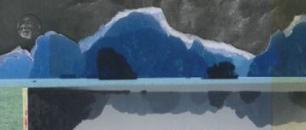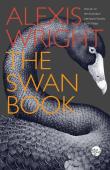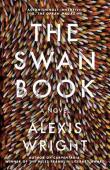
Latest Issues
AbstractHistoryArchive Description
'The new novel by Alexis Wright, whose previous novel Carpentaria won the Miles Franklin Award and four other major prizes including the Australian Book Industry Awards Literary Fiction Book of the Year Award. The Swan Book is set in the future, with Aboriginals still living under the Intervention in the north, in an environment fundamentally altered by climate change. It follows the life of a mute teenager called Oblivia, the victim of gang-rape by petrol-sniffing youths, from the displaced community where she lives in a hulk, in a swamp filled with rusting boats, and thousands of black swans driven from other parts of the country, to her marriage to Warren Finch, the first Aboriginal president of Australia, and her elevation to the position of First Lady, confined to a tower in a flooded and lawless southern city. The Swan Book has all the qualities which made Wright’s previous novel, Carpentaria, a prize-winning best-seller. It offers an intimate awareness of the realities facing Aboriginal people; the wild energy and humour in her writing finds hope in the bleakest situations; and the remarkable combination of storytelling elements, drawn from myth and legend and fairy tale.' (Publisher's blurb)
Publication Details of Only Known VersionEarliest 2 Known Versions of
Other Formats
- Sound recording.
- Braille.
Works about this Work
-
Transnationalism and the Literary Reception of Australian Women Writers’ Fiction in the US, 2010–2020 : Three Case Studies
2024
single work
criticism
— Appears in: Journal of Australian Studies , vol. 48 no. 1 2024; (p. 33-47)'The following article examines how Australian literary fiction by women is received in the United States. In particular, it considers how books are positioned by publishers, reviewers and authors as relevant to an American audience as well as to what extent Australian literary fiction’s appeal is borne out in reviews and in an online forum, Goodreads. To address these questions, I examine the US reception of three diverse literary novels by Australian women: Waanyi author Alexis Wright’s The Swan Book (Atria Books, 2016), Charlotte Wood’s The Weekend (Riverhead, 2020), and Michelle de Kretser’s Questions of Travel (Little, Brown, 2013). I argue that recent Australian literary fiction by women makes an appeal to US readers through a combination of “transnational orientation”—or ideas, characters and settings that a novel evokes to address a global readership—which are leveraged by publishers in book design and endorsements, and “authorial disambiguation”, in the form of essays and websites written by authors and addressed to local and global readers. Efforts to draw attention to a novel’s currency for a US audience are unevenly evident in reviews in broadsheets and trade publications, as well as on Goodreads.' (Publication abstract)
-
Settler Belonging in Crisis : Non-Indigenous Australian Literary Climate Fiction and the Challenge of “The New”
2023
single work
criticism
— Appears in: ISLE : Interdisciplinary Studies in Literature and Environment , Winter vol. 30 no. 4 2023; (p. 952–971) -
Alexis Wright’s Novel Activism
2023
single work
criticism
— Appears in: The Cambridge Companion to the Australian Novel 2023; (p. 178-193)'This chapter considers Alexis Wright’s trajectory as a writer from Grog War (1997) to The Swan Book (2013), arguing that her body of work presents a consistent vision that is “at once Aboriginal and Australian, modern and ancient, local and yet outward-looking.” It pays special attention to the notion of “all times,” the relation between form and politics, and how imaginative sovereignty underpins Wright’s work.' (Publication abstract)
-
From Brest…: Indigenous Environmental Practices as Responses to Pollution
2023
single work
essay
— Appears in: Antipodes , vol. 36 no. 1 2023; (p. 155-157)'The Marina du Château room was the perfect location for the 2021 international conference "Indigenous Environmental Practices as Responses to Pollution," directly following the 2021 conference on Alexis Wright's Carpentaria in Brest. On October 21 and 22, 2021, the sunlit room lined with high windows opening on a large, oval balcony directly looked out on the Brest Harbour, such that the sky and ocean became integral parts of the conference venue. The ocean's mesmerizing power added an ethereal touch to the intriguing conversations of all participants, including Alexis Wright and Tara June Winch. Brest was the perfect point of convergence between the Americas and Oceania, with participants from all over the world, virtually and on-site, reflecting on contemporary environmental challenges and the different ways Indigenous artistic practices tackle them.' (Introduction)
-
Wording Mute Posthumanism in Alexis Wright's The Swan Book
2023
single work
criticism
— Appears in: Antipodes , vol. 36 no. 1 2023; (p. 107-121)'Alexis Wright's critically acclaimed third novel, The Swan Book (2013), has been analyzed profusely by scholars around the world. No matter how manifold these interpretative nets may be, they always refer to the character Oblivion Ethyl(ene), aka Oblivia. What is particularly telling in that regard is that Oblivia as the novel's protagonist and focalizer is a speechless child. As the article shows, Wright's so-called total novel constructs Oblivia and the virus in her brain as the novel's narrator(s), enabling her to fill her speechless world with words and meaning. Hence, as a mute narrator, Oblivia becomes one of the most unreliable but equally one of the most honest, life-affirming storytellers in contemporary fiction. The universe of her unspoken words reveals Oblivia's ability to communicate with the nonhuman and other-than-human, offering readers who are receptive a story about what it means to be posthuman in a world that defies posthumanism.' (Publication abstract)
-
Counter Intervention
2013
single work
review
— Appears in: The Weekend Australian , 10-11 August 2013; (p. 18-19)
— Review of The Swan Book 2013 single work novel 'Alexis Wright's long-awaited new novel is a work of fury, beauty and urgent importance...' -
Living Wound
2013
single work
review
— Appears in: Australian Book Review , September no. 354 2013; (p. 22, 24)
— Review of The Swan Book 2013 single work novel -
[Review] The Swan Book
2013
single work
review
— Appears in: The Courier-Mail , 5 October 2013; (p. 21)
— Review of The Swan Book 2013 single work novel -
After the Apocalypse : Despair, Hope and All Things Between
2013
single work
review
— Appears in: The Sydney Morning Herald , 5-6 October 2013; (p. 28-29) The Canberra Times , 5 October 2013; (p. 22)
— Review of The Swan Book 2013 single work novel -
Literature
2013
single work
review
— Appears in: The Monthly , October no. 94 2013; (p. 56)
— Review of The Childhood of Jesus 2013 single work novel ; The Swan Book 2013 single work novel ; Questions of Travel 2012 single work novel -
World of Words
2012
single work
column
— Appears in: The Sydney Morning Herald , 28-29 December 2012; (p. 22) The Canberra Times , 29 December 2012; (p. 15-16) The Saturday Age , 29 December 2012; (p. 22-23) Jane Sullivan nominates the best Australian and overseas published books for 2013. -
Interview : Alexis Wright
2013
single work
interview
— Appears in: The Sydney Morning Herald , 3-4 August 2013; (p. 26-27) The Canberra Times , 3 August 2013; (p. 19) 'After a whirlwind of success with her novel Carpentaria, the author returns with a dark fairytale about climate change, refugees and surprising beauty...' -
The Future of the Swans
2013
single work
interview
— Appears in: Overland , Summer no. 213 2013; (p. 27-30) 'At this year's Melbourne Writers Festival, Arnold Zable spoke with Alexis Wright about her new novel.' -
Leading Author's Novel Imagines a Disturbing Future
2014
single work
column
— Appears in: Koori Mail , 7 May no. 575 2014; (p. 6) 'Aboriginal writer and activist Alexis Wright has been thinking about the future - and what might eventuate if humanity blithely continues to ignore the warning signals being sent by our warming planet and if governments continue to disempower Aboriginal people.' -
Franklin Short List Revealed
2014
single work
column
— Appears in: The West Australian , 20 May 2014; (p. 7)
Awards
- 2016 shortlisted Festival Awards for Literature (SA) Adelaide Festival Awards for Literature South Australian Literary Awards — Award for Fiction
- 2016 winner Australian Centre Literary Awards — The Kate Challis RAKA Award
- 2014 shortlisted Voss Literary Prize
- 2014 shortlisted Victorian Premier's Literary Awards — Prize for Indigenous Writing
- 2014 shortlisted New South Wales Premier's Literary Awards — Christina Stead Prize for Fiction












